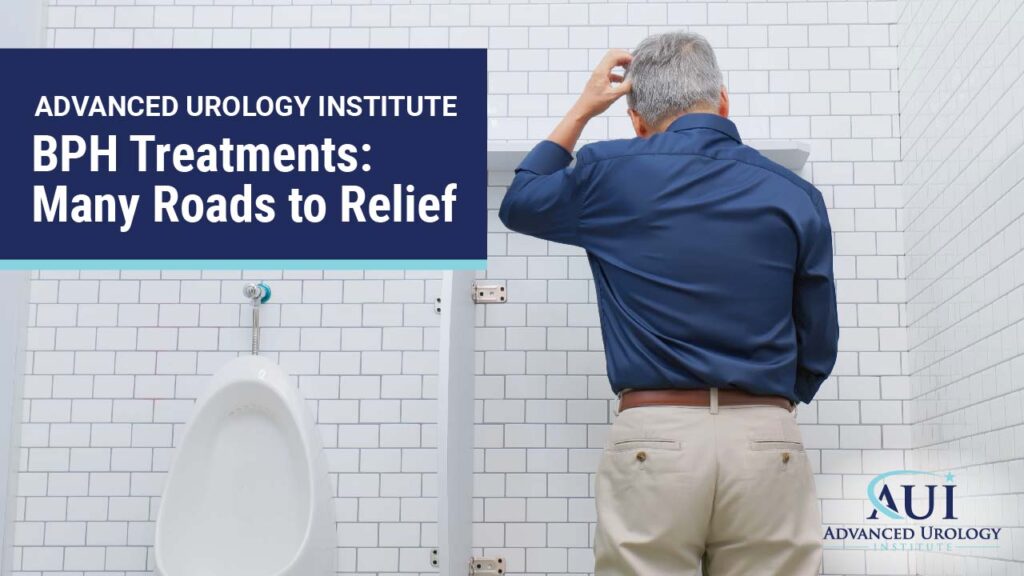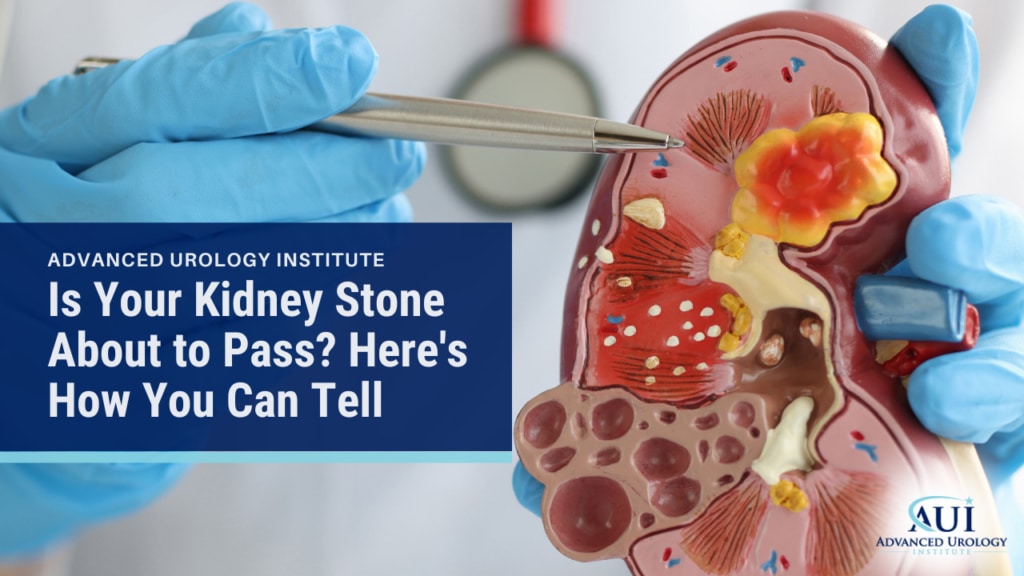An enlarged prostate, also called benign prostatic hyperplasia (BPH), is an increase in the size of the prostate. While most men have prostate growth throughout their life, not all men get bothersome symptoms. As the prostate grows it presses on the outside of the urethra and can slow down or even stop the flow of urine. BPH is common in men in their 50’s, with about 1 in 3 men above 50 years of age having urinary symptoms.
It is not clear what causes prostate enlargement. However, the following risk factors are involved:
Age – While prostate gland enlargement hardly causes symptoms in men below age 40, about a third of men in their 60’s and about half of men in their 80’s have BPH symptoms.
Hormone Levels – The balance of hormones in the body changes as men grows older, causing the prostate to grow.
Family History – Those with a blood relative, especially a father or brother, with prostate problems are more
likely to have BPH.
Ethnic Background – BPH symptoms are more common in white and black men than Asian men. Black men tend to experience BPH symptoms at a younger age than white men.
Lifestyle – Regular exercise lowers the risk of BPH while obesity increases the risk.
Diabetes and Heart Disease – The risk of BPH increases in men with diabetes, heart disease and those on beta blockers.
What are the symptoms of an enlarged prostate?
The severity of symptoms in people with BPH varies, but tends to worsen over time. Common symptoms include:
- urgent or frequent need to urinate
- nocturia (increased frequency to urinate at night)
- difficulty starting urination
- inability to completely empty the bladder
- weak urine stream or a urine stream that stops and starts
- straining while urinating
- dribbling at the end of urination
The less common symptoms of BPH are:
- inability to urinate
- urinary tract infection
- blood in the urine
You may never get all of these symptoms. In fact, some men with an enlarged prostate do not get any symptoms at all. In some men, the symptoms eventually stabilize and may even improve over time, while in others they may get worse. Some of these symptoms may be caused by other conditions, like anxiety, cold weather, lifestyle factors, certain medicines and other health problems. Therefore, if you have any of the above symptoms, visit your physician to find out what could be causing them.
How can a urologist help?
A urologist will take your medical history and conduct a physical exam. Depending on the severity of the symptoms, the urologist will order tests such as digital rectal exam, urine test, blood test for kidney problems, prostate-specific antigen (PSA) blood test or a neurological exam. The doctor may also request additional tests such as urinary flow test, post-void residual volume test, and 24-hour voiding diary. If the problem is more complex, the urologist may recommend a transrectal ultrasound, prostate biopsy, cystoscopy, urodynamic and pressure flow studies, intravenous pyelogram or CT urogram. If an enlarged prostate is diagnosed, the urologist has various treatment options to offer including lifestyle modifications and medicines. In severe cases, the urologist will opt for surgery. For more information and help with BPH, visit Advanced Urology Institute.






